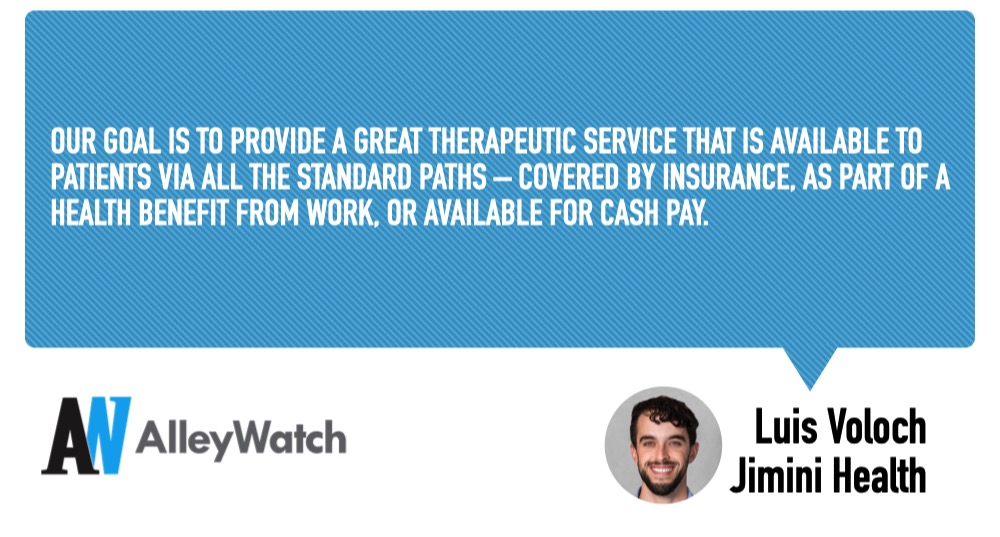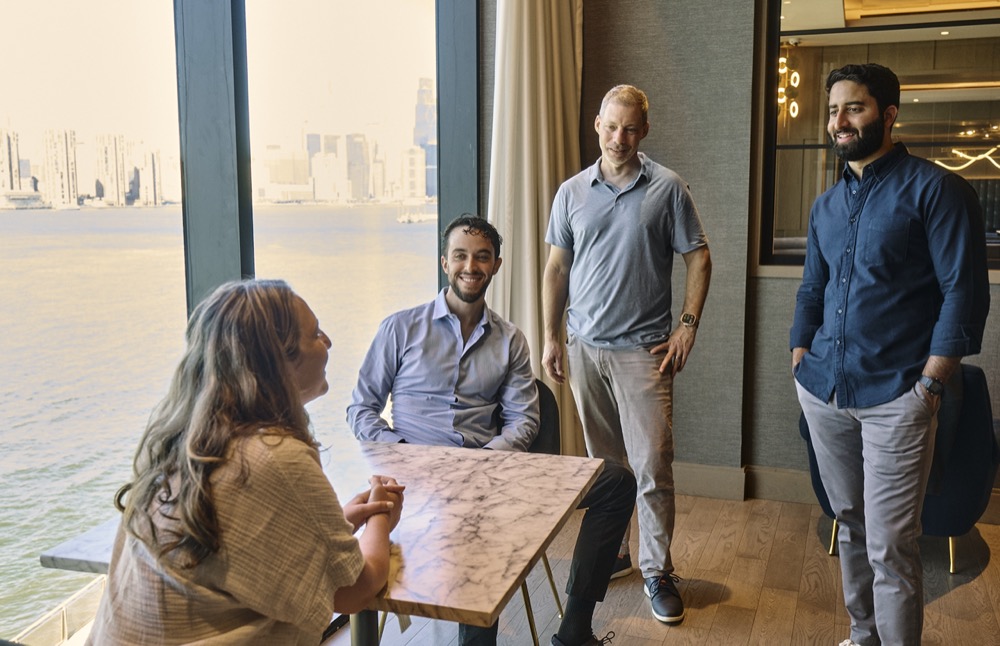Mental health is a critical and often overlooked aspect of healthcare, with more than 50M Americans diagnosed with anxiety disorders and millions more struggling with undiagnosed mental health challenges. The traditional therapy model, typically limited to once-weekly sessions, leaves patients without meaningful guidance during the vast majority of their time outside clinical settings. Jimini Health has created an AI-augmented therapy model that fundamentally reimagines the patient journey, offering a clinically effective and more modern treatment approach. By combining expert human telehealth therapists with an AI assistant named Sage, the company provides continuous, personalized support that keeps patients engaged in their therapeutic goals between sessions. Their innovative approach addresses two significant challenges in mental health care: limited access to therapists and the historically mediocre efficacy of traditional therapy models. With a mission to transform mental health treatment, Jimini Health aims to make high-quality, supportive therapeutic experiences more accessible and impactful for the millions of people struggling with anxiety, depression, and other mental health conditions.
AlleyWatch caught up with Jimini Health Cofounder and CEO Luis Voloch to learn more about the business, the company’s strategic plans, recent round of funding, and much, much more…
Who were your investors and how much did you raise?
$8M, Pre-Seed, Zetta Venture Partners, LionBird, PsyMed, BoxGroup, Arkitekt Ventures, SCB, and others.
Tell us about the product or service that Jimini Health offers.
We are building an AI-augmented therapy model, where we have redesigned the entire patient journey, creating a clinically effective, more modern treatment for patients.
What inspired the start of Jimini Health?
 At our core, we’re trying to solve the interrelated problems of access and efficacy in psychotherapy. Therapy has been stuck in a rut with mediocre efficacy for decades, and there are not nearly enough (probably by an order of magnitude) therapists to handle all the need. We believe that the combination of LLMs (and other AIs) along with mobile allows for a complete rethink of the care paradigm to something more effective and accessible.
At our core, we’re trying to solve the interrelated problems of access and efficacy in psychotherapy. Therapy has been stuck in a rut with mediocre efficacy for decades, and there are not nearly enough (probably by an order of magnitude) therapists to handle all the need. We believe that the combination of LLMs (and other AIs) along with mobile allows for a complete rethink of the care paradigm to something more effective and accessible.
More specifically, all three cofounders have personal experience with effective therapy changing their lives and a belief that untreated anxiety and depression are among the greatest unmet medical needs of our time. Coming from working on cancer before (previously immunai.com), which is one of the most impactful things one can do, we believe that the potential for good in the world in mental health is even larger. The pasture is a lot greener and much less has been done.
How is Jimini Health different?
Our focus is on deep innovation of the therapeutic experience. There are many, many mental health start-ups, but most of them focus on better scheduling, billing, or customer acquisition – we’re trying to change the way therapy is delivered to make it radically more effective and scalable, as we have a mental health crisis that requires this sort of change.
What market does Jimini Health target and how big is it?
Ultimately our market is anyone who struggles with anxiety or depression, and who would benefit from therapy. This market is nearly unlimited; there are more than 50M Americans who have been diagnosed with anxiety disorders, and that’s likely underestimating the market.
What’s your business model?
Our goal is to provide a great therapeutic service that is available to patients via all the standard paths – covered by insurance, as part of a health benefit from work, or available for cash pay.

How are you preparing for a potential economic slowdown?
Unfortunately, mental health businesses are only more important during a slowdown. The need for services like Jimini appears to be growing.
What was the funding process like?
Jimini’s founders have raised many rounds of funding for many start-ups in the past, so have a large network of investors to reach out to, but in particular for this funding focused on firms that specialize in either AI/ML, or mental health.
What are the biggest challenges that you faced while raising capital?
Our process went well, all things considered. It’s obviously a tough time for health tech and biotech early-stage fundraising, but investors were immediately responsive to the scale and scope of our ambition and the caliber of the team.
What factors about your business led your investors to write the check?
Probably a combination of the scope of the problem, the depth of our ambition (we want to remake the way therapy works, not just improve scheduling or insurance billing, etc.), and the fact that we had a broad and deep team that could actually pull off our ambition vision.

What are the milestones you plan to achieve in the next six months?
Our most important milestones are service-related: we want our patients to continue to have a great experience where we address their needs and they love their therapists and outcomes. We expect to close many payer contracts as well and to be able to more deeply integrate our AI Sage into the therapeutic process.
What advice can you offer companies in New York that do not have a fresh injection of capital in the bank?
Make sure the scope of your vision matches your funding needs, and you are working with investors that you respect and enjoy working with.
Where do you see the company going in the near term?
While we’re a global business with ambitions to change mental health worldwide and have remote employees in many locations, we are, at our core, an NYC company. We anticipate building our headquarters here and being an important lynchpin in the NYC tech scene.
What’s your favorite fall destination in and around the city?
Domino Park. Central Park. All things park. Getting outside (before the really grim winter weather) is great for mental health.





